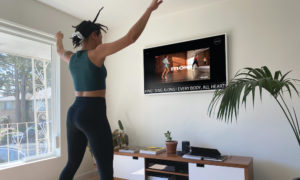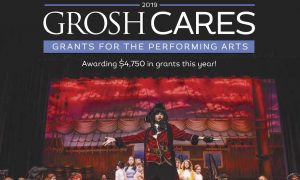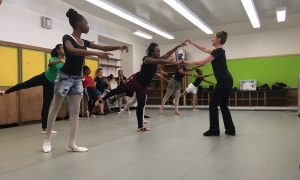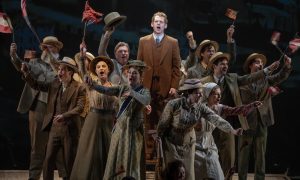By Stephanie Wolf of Dance Informa.
To go for a nonprofit status or not, this seems to be the question on many artists’ minds in the fetal stages of professional development. While advantages like eligibility for grants and the ability to accept tax-deductible donations appeals to professional artists, the process of gaining a 501(c)3 status can be daunting and a distraction from making art. Acknowledging this roadblock, Minnesota-based Springboard for the Arts hopes to ease some of the burdens involved with getting an artistic project or business up and running by offering its fiscal sponsorship program, the Incubator.
What’s in a name?
From its inception, Springboard for the Arts has been financially assisting a handful of artists with their creative endeavors. As the demand for this type of backing increased, so did the opportunity for the organization to expand its fiscal programs and support. In 2009, the organization launched its Incubator Program to give more definitive parameters around this evolving fiscal support system.
“We want projects to start the healthiest way possible,” says Molly Chase, Springboard for the Arts Managing Director. “This usually means giving projects the space and time to develop their artistic work as well as decide whether they want to pursue their 501(c)3 status…the name Incubator seemed like a good fit.”
Why fiscal sponsorship?
Applying for a 501(c)3 status can take 12–18 months and requires logistical actions like setting bylaws, building a board and completing extensive paperwork. A fiscal sponsor alleviates artists of these additional stresses, yet still enables them to be eligible for grants and accept tax-deductible donations. Therefore, during the initial phases of artistic work, Chase says fiscal sponsorship can be a pragmatic approach to professional progression.
“Fiscal sponsorship allows artists to focus on their artistic practice rather than building the infrastructure they need for 501(c)3 status,” says Chase. By participating in Springboard for the Arts’ Incubator, Chase says arts organizations can channel their energies into “providing arts experiences to the public and get…started in a responsible, sustainable way.”
Relationships need to be cultivated and it can take time to discover which personalities and companies are a good fit for an artistic business. Fiscal sponsorship give artists the liberty to “test the waters,” according to Chase, and create a nurturing environment with staying power.

Savage Umbrella. Photo by Ted Eschweiler.
Every artist has different needs
From one-time shows, to projects that give back to the community, to an interest in experimenting with collaboration, there are so many variables that factor into professional goals for artists. Therefore, Springboard is sensitive to the individual needs of each client and works hard to establish an understanding of those needs from the beginning.
Operations Springboard might assist with providing letters of support, helping with paperwork for grants, answering questions, setting them up with online fundraising tools like GiveMN.org and directing artists towards invaluable resources.
“We know there are many definitions of success for an artist, and we help them define success for themselves: financial success, recognition, community support, respect or social change,” says Chase. “They are all equally valid.”
Currently, Springboard is at work on a new initiative to connect Incubator clients with professional grant prospectors. Incubator clients put in a request highlighting their project and needs. Grant prospectors then find up to 10 leads that may be a good fit for $100—if they come back with less than 10 leads, the fee is $10 per lead. Chase says the program was launched in response to requests from current Incubator clients.
Springboard also helps bring their clients’ work to the public. Through efforts like social media and hosted happy hours that bring projects together, Chase believes Springboard is creating a platform to promote professional exposure as well as giving artists from different disciplines the opportunity to interact and share ideas.
Not just for Minnesotans
Springboard’s Incubator program is intended for Minnesota artists. However, similar programs exist throughout the country. According to the Fiscal Sponsor Directory, fiscal sponsorship is a growing trend in nonprofit management and 33 U.S. states offer this type of programming—one of which is Fractured Atlas in New York.
For more information on how to apply for the Incubator Program, visit http://springboardforthearts.org/incubator-program.
Visit http://fiscalsponsordirectory.org to find a fiscal sponsor by location and category.
Photo (top): Emily Johnson/Catalyst’s SHORE Preview. Photo by Max Wirsing.















